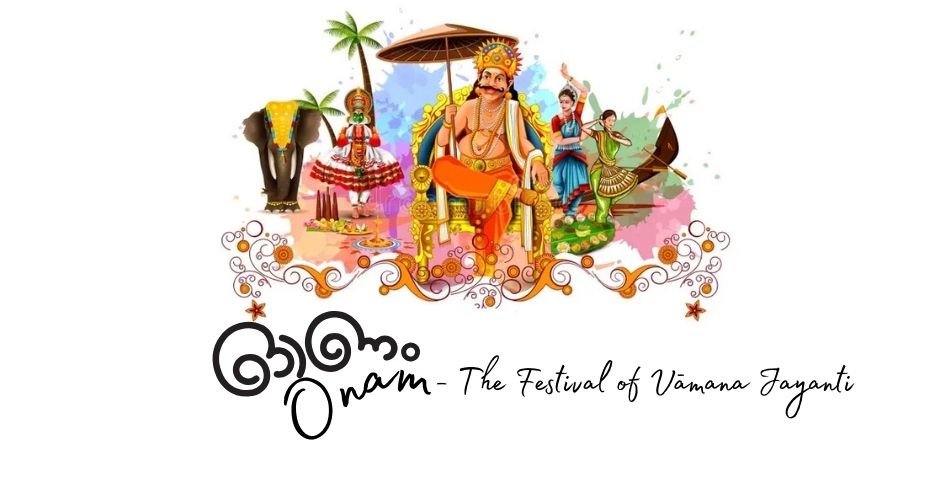
Onam is widely celebrated as Kerala’s harvest festival, marked by floral carpets, feasts, boat races, and joyous homecomings. Yet beneath the cultural festivities lies a profound spiritual foundation: Onam coincides with Vāmana Jayanti, the day that commemorates the appearance of Lord Vāmana, the fifth incarnation of Lord Viṣṇu.
The story begins with Mahābali, the great Asura king who ruled Kerala and beyond. Beloved for his generosity, he established a golden era of equality and prosperity. However, with his growing power and influence, the Devas sought Viṣṇu’s intervention. Viṣṇu chose to incarnate not as a warrior but as a humble Brahmin dwarf, Vāmana. Appearing at Mahābali’s sacrificial yajña, Vāmana asked for just three paces of land. The king, known for his boundless charity, readily agreed.
Vāmana then expanded into his cosmic form, Trivikrama, covering the heavens and earth in two strides. With no space left for the third, Mahābali humbly offered his own head. Pressing him down to the netherworld, Lord Viṣṇu, pleased with his devotion and humility, granted him the boon of visiting his people once every year. This divine act is the essence of Onam—the annual homecoming of Mahābali and the celebration of dharma restored through Vāmana.
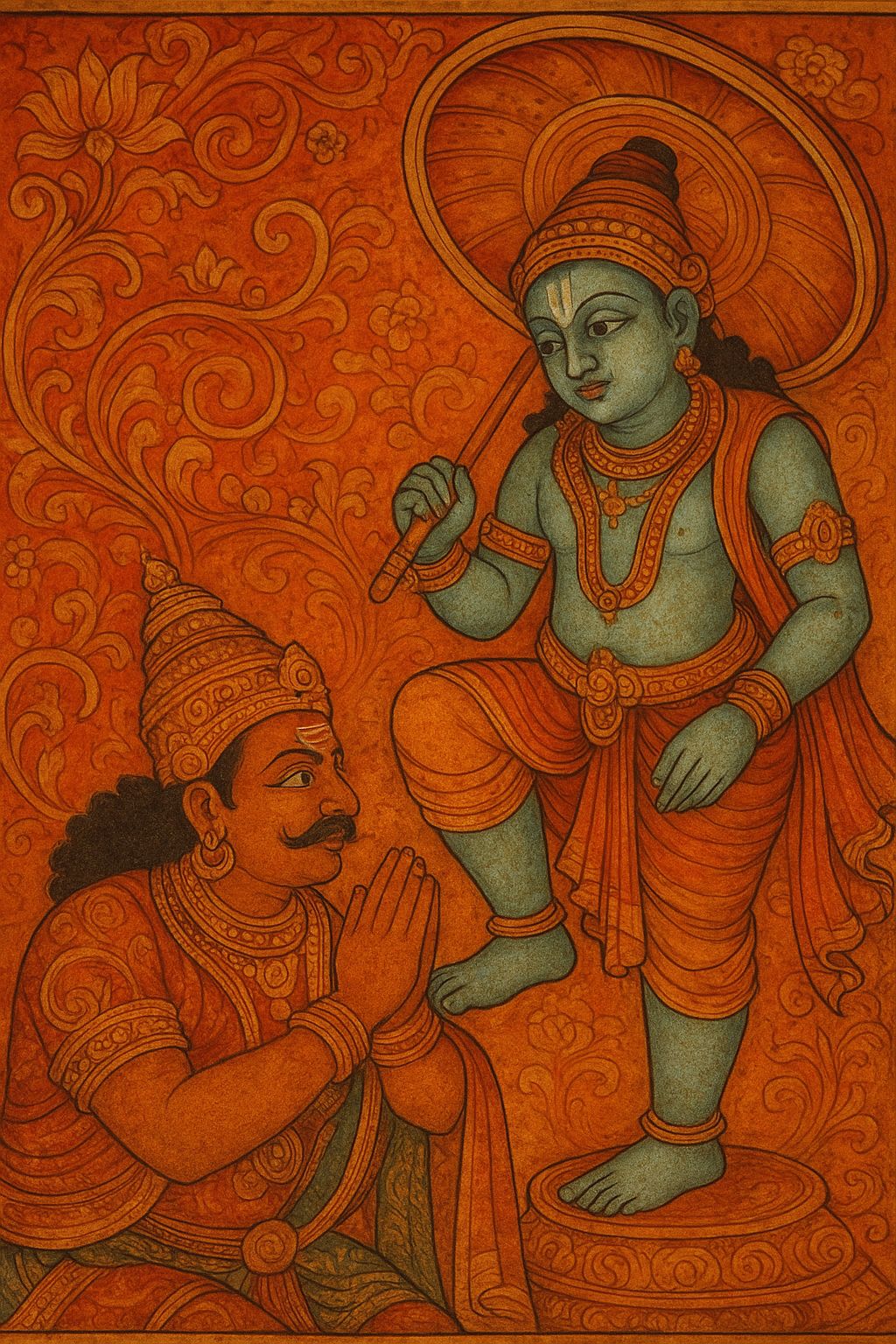 Thus, Onam is not merely a harvest festival but also the commemoration of Vāmana’s victory of humility over pride, righteousness over unchecked power, and divine balance over material prosperity alone. The timing of the festival, in the month of Chingam (August–September), aligns with Śrāvaṇa Nakṣatra in the month of Bhādrapada, which is observed as Vāmana Jayanti across India.
Thus, Onam is not merely a harvest festival but also the commemoration of Vāmana’s victory of humility over pride, righteousness over unchecked power, and divine balance over material prosperity alone. The timing of the festival, in the month of Chingam (August–September), aligns with Śrāvaṇa Nakṣatra in the month of Bhādrapada, which is observed as Vāmana Jayanti across India.
While other regions celebrate Vāmana Jayanti with fasting, prayers, and scriptural recitations, Kerala integrates it into its cultural heart as Onam. The floral pookkalam represents the joy of welcoming Mahābali; the grand sadhya feast symbolizes abundance granted by divine grace; and the Vallamkali (boat race) echoes the spirit of unity and collective effort.
Recognizing Onam as Vāmana Jayanti deepens its meaning. It is not only about celebrating prosperity and nostalgia for Mahābali’s just reign but also about remembering Viṣṇu’s cosmic act of restoring balance. The festival thus beautifully weaves together devotion, culture, and nature’s bounty.
In essence, every Onam is a reminder that true greatness lies in humility, charity, and surrender to the divine—values personified by both Mahābali and Vāmana.
 Founder of The Verandah Club and Convenor of INTACH Coimbatore. A passionate traveller and trendspotter, he lives by the philosophy Dharmo Rakshati Rakshitah.
Founder of The Verandah Club and Convenor of INTACH Coimbatore. A passionate traveller and trendspotter, he lives by the philosophy Dharmo Rakshati Rakshitah.
PREVIOUS ARTICLE
NEXT ARTICLE
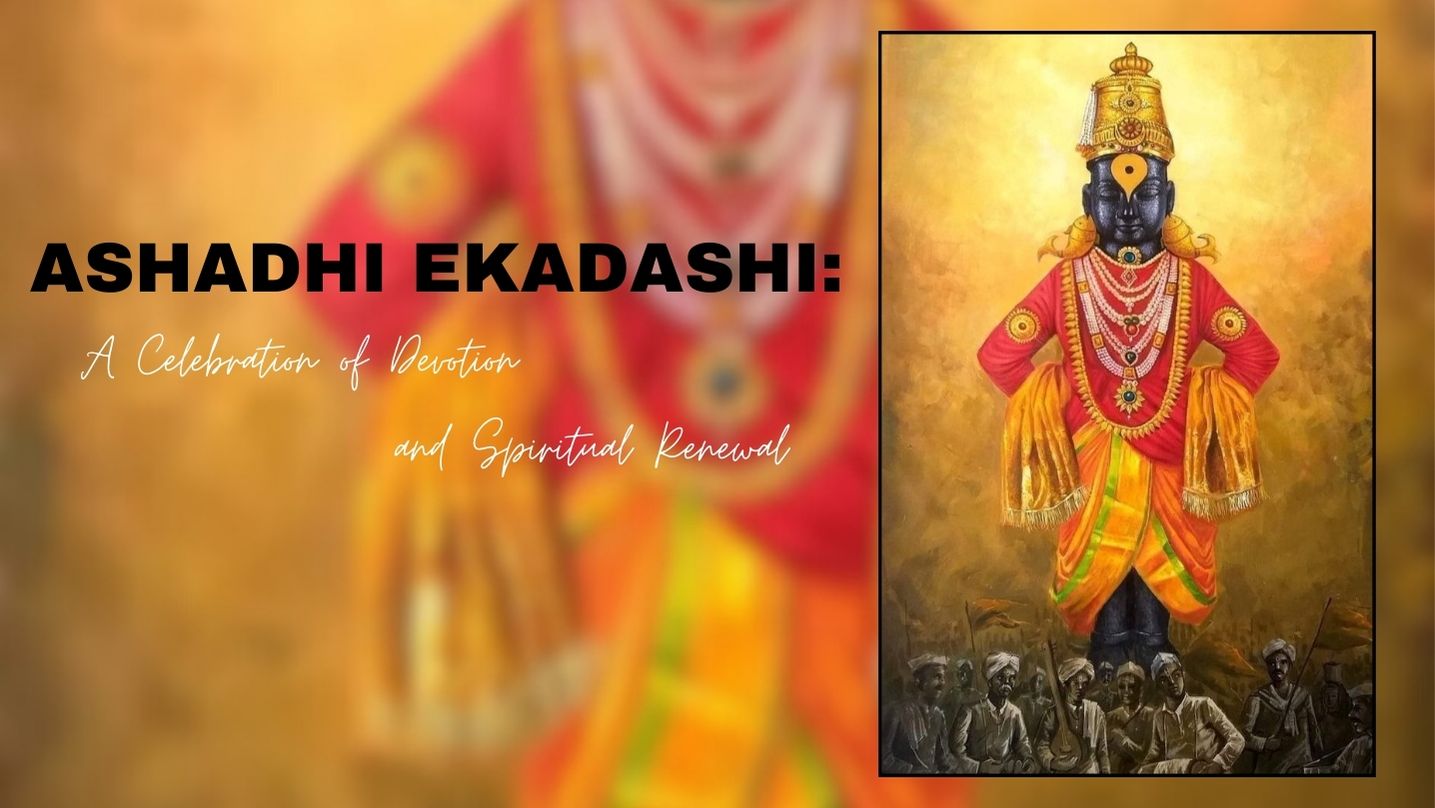
Ashadhi Ekadashi, also known as Shayani Ekadashi, falls on the 11th lunar day (Ekadashi) of the bright fortnight (Shukla Paksha) of the Hindu month of...
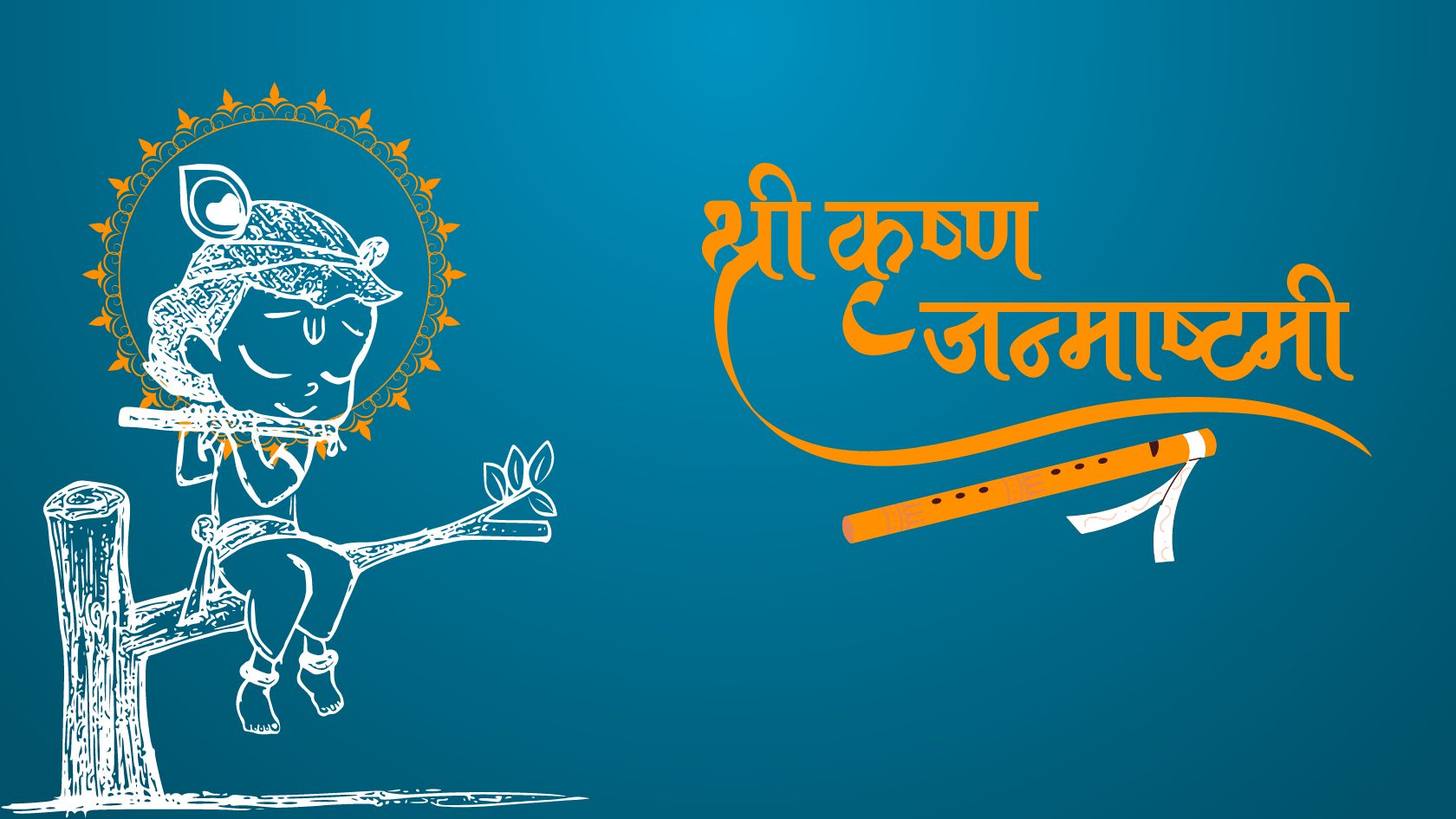
Every year, as the monsoon rains dance on the fields of India, an ancient story unfolds in the hearts of millions. It is the story of Krishna, the bel...
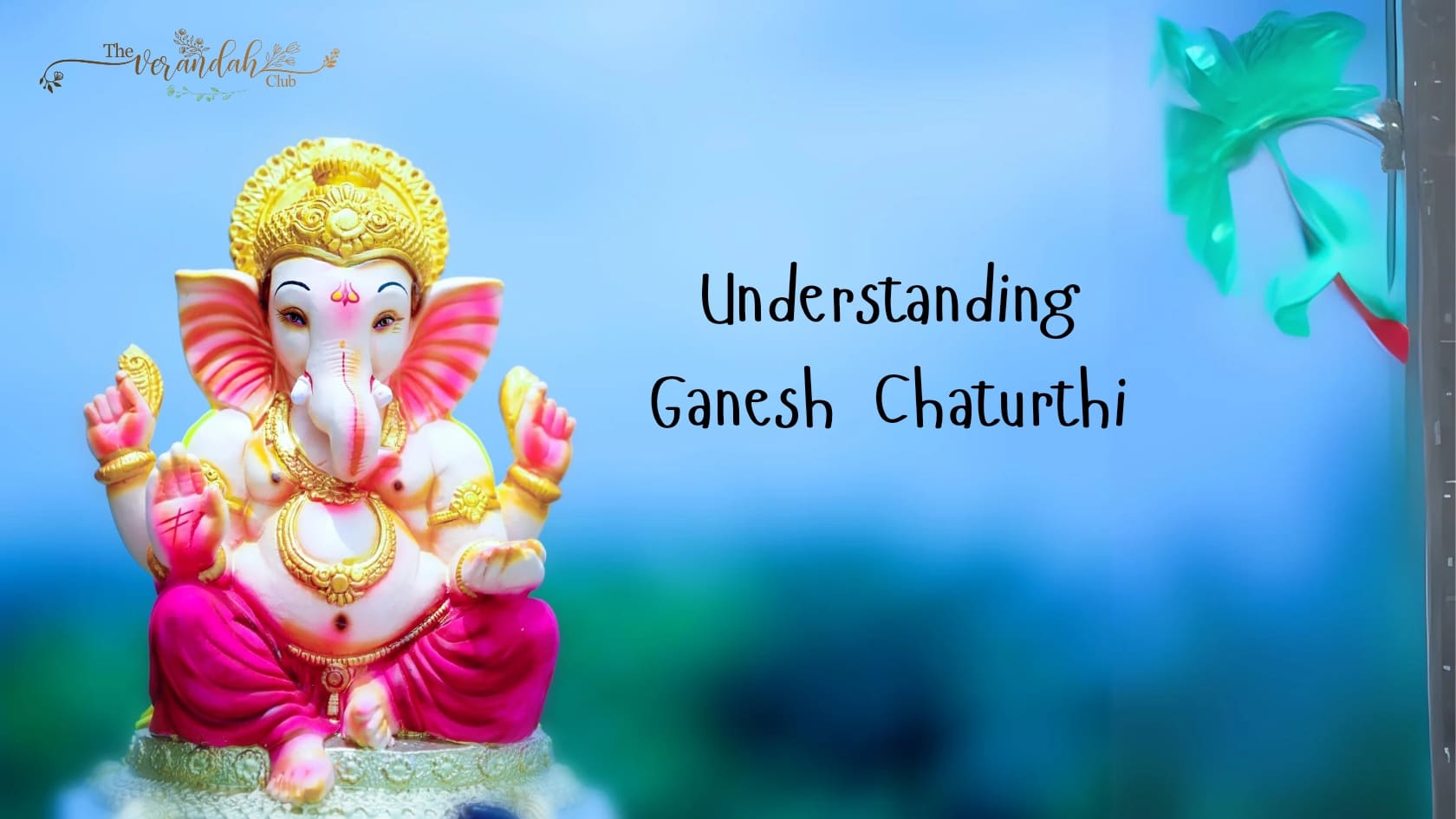
Ganesh Chaturthi, also known as Vinayaka Chaturthi, is a significant Hindu festival that honors Lord Ganesha, the deity revered as the remover of obst...